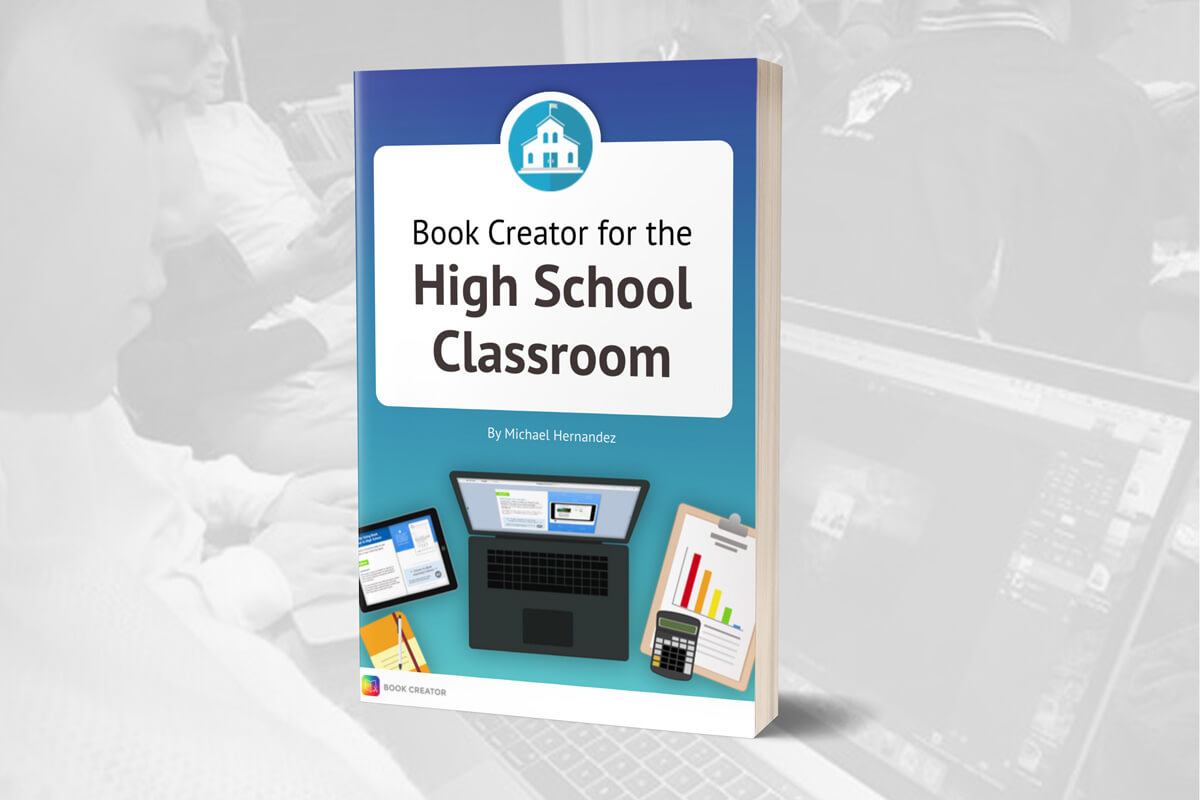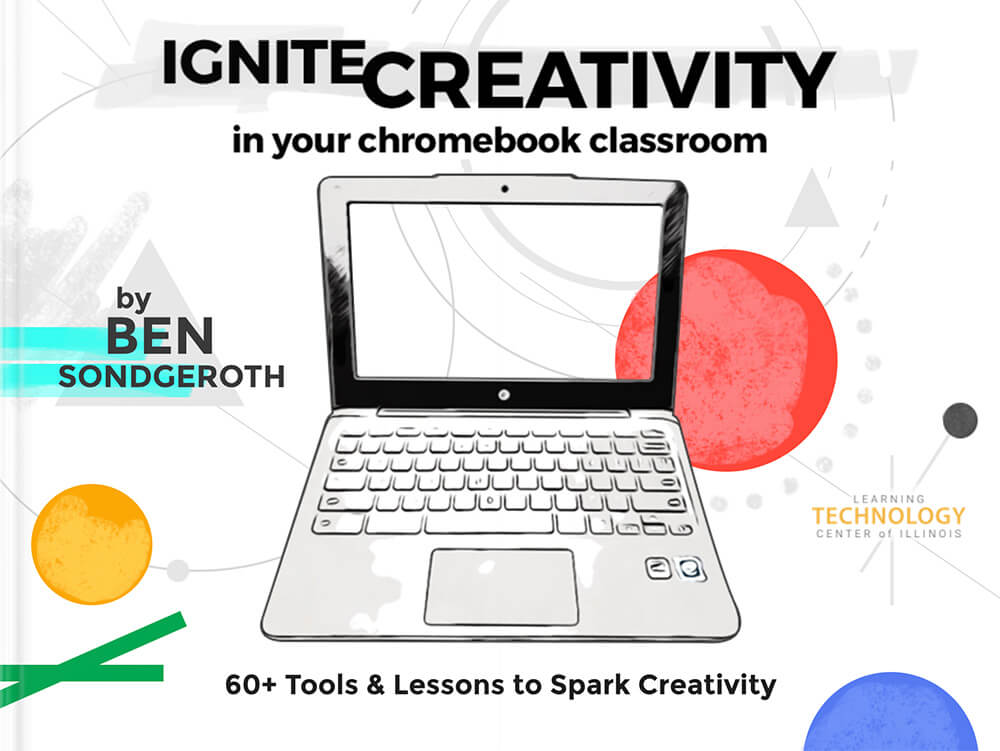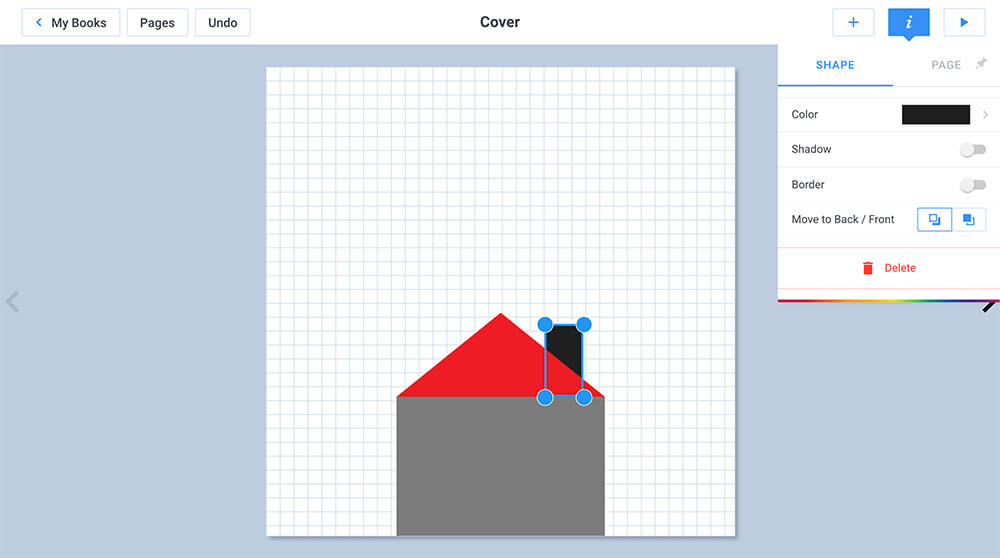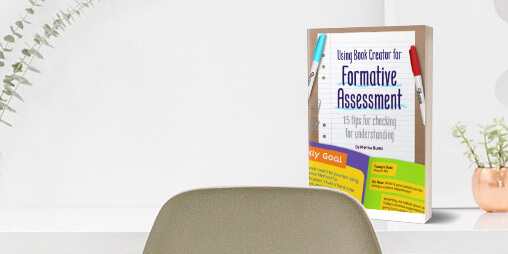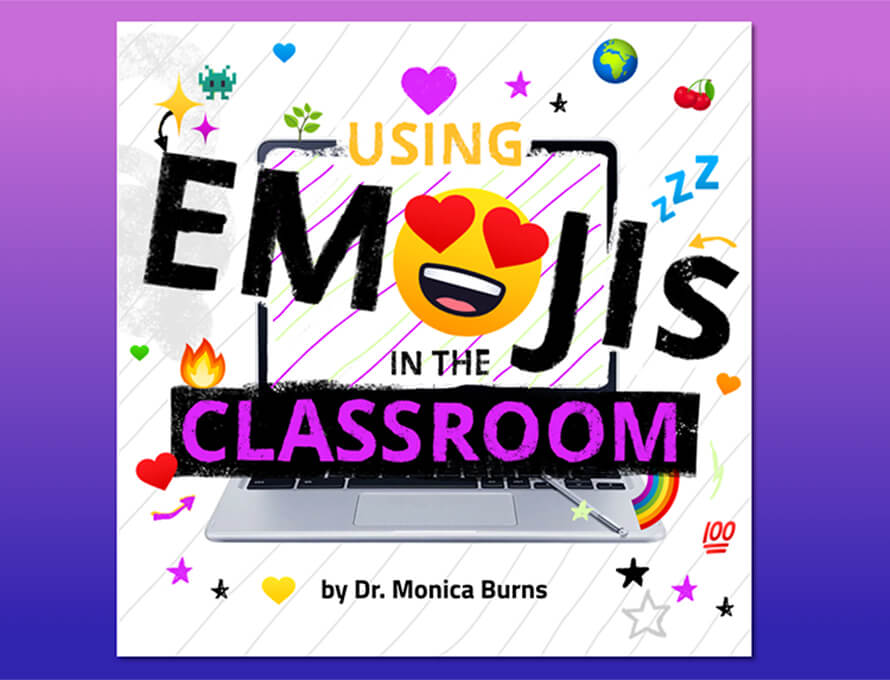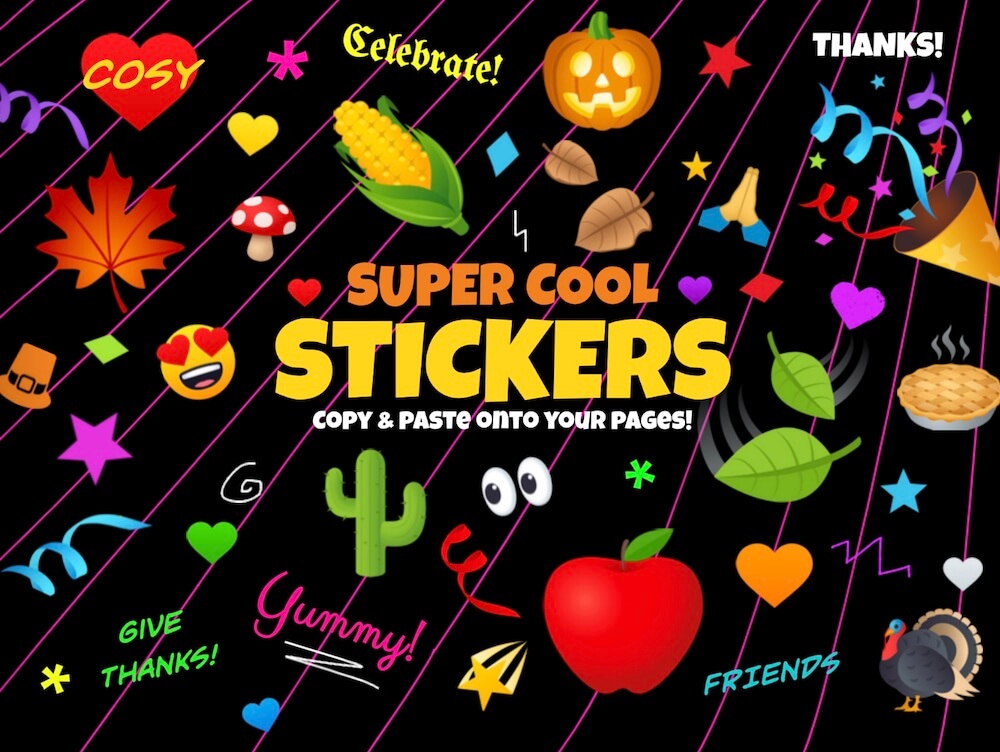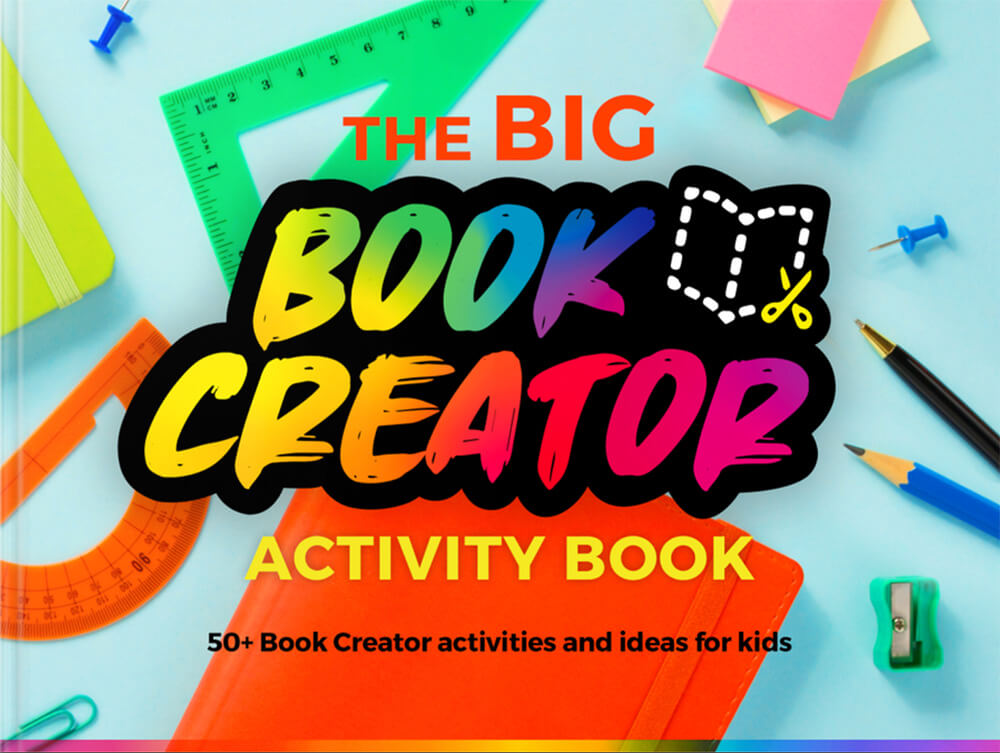We get asked a lot about how to run competitions using Book Creator - so we've drawn on our own experience to come up with some expert tips and advice.
One way to guarantee student engagement is to run a competition. A nice prize, the pride of having your work recognised among your peers... it all adds up to a great classroom experience. This idea can work all year round, but especially towards the end of the school year. We're working with lots of schools at the moment who are interested in running a Book Creator competition, so we thought we'd share some best practice guidelines to help you along.
1. Set a theme / format
Setting a theme for your competition helps focus the writing. In 2020 we ran a competition with the theme 'A Better Future', and students came up with some astounding fiction and non-fiction ideas.
You could set a theme by genre - e.g. horror, romance, science fiction. Or by topic - e.g. "coming of age", "survival", "courage and heroism".
Some other ideas:
🌎 Imagine a world without... Students must choose an object (or service/system for older students) which they use every day and create a book about what the world would look like without it.
🤯 Alternate endings: What would have happened if the first bowl of porridge Goldilocks tried was just right? What if the seven dwarves met seven opposite dwarves, what might their names be?
📍 Town/State/School/Class Showcase: Have your students celebrate their local area by creating pages which showcase lots of different ideas and facts into a book. The winning book could then be used to introduce new students to the school/class/area!
🤔 Consequences: Each student creates a page of a story (either a known story or a new story) and then passes on to another student. Each student must include enough information on their page that the next student can continue the story. In the end, you have one complete story told through various student’s voices and media.
🔀 Choose your own adventure: Have your students use creativity, problem solving and concept design to create a multi-faceted adventure book. You can create hyperlinks between pages in Book Creator to move in a non-linear way through the book (like this example), or follow specific characters as they tell the story from their perspective, like in the example below.
Your competition needn't be focused on just fiction, either. How about non-fiction research topics, or perhaps a poetry competition? Could you weave in any of these other end of year project ideas?
What's allowed? What's not allowed?
Setting constraints can really boost creativity. For example, in a recent competition we ran with Planet Classroom, we allowed any storytelling genre but limited the entrants to one page only! This really challenged their story writing craft.
Think about the book format - are you going to allow comic books? What shape do you want the book to be? This is an important consideration if you are running a collaborative competition, as you might want to combine the books at the end of the competition.

Also think about digital media. What if students had to create a book that contained no text? You can search within Book Creator to add images, maps, videos, audio, and various other media to each page - how can they use these to bring the book to life?
Also be sure to encourage good digital citizenship—students should use citations for external references in their book.
2. Give clear directions
The secret here is to keep it as simple as possible. I'd suggest setting up a page on your school blog with all the directions:
- Who is eligible? If you're running a district-wide competition, perhaps it's limited to certain schools or grade levels?
- What are the requirements? Here's where you explain the theme, word/page count, book format, and any other criteria. Do you need them to design a cover for their book? Should they include an author bio? Make sure the kids realise that if they don't meet the requirements then they won't be eligible to win!
- How do you win? You might want to provide a short rubric of what you're looking for - more on that later.
- When is the deadline for entry?
 How do students submit their books? The simplest way would be to create a separate library in Book Creator for each competition you run.
How do students submit their books? The simplest way would be to create a separate library in Book Creator for each competition you run.- Note, you'll need to be on paid plan to create multiple libraries. But, if you need help, you can reach out to us and we may be able to temporarily upgrade you for the duration of the competition. Contact us with this form.
Good housekeeping tips
There are some other good things to consider as you manage your competition in Book Creator.
If you've set up this library for competition entrants, you're going to want to have teachers (or students, if they're capable) join the library and then either create their books in that library (if it's only one class, for example) OR they will need to copy their books into the library once they've ready to submit them.
How to copy books from one library to another
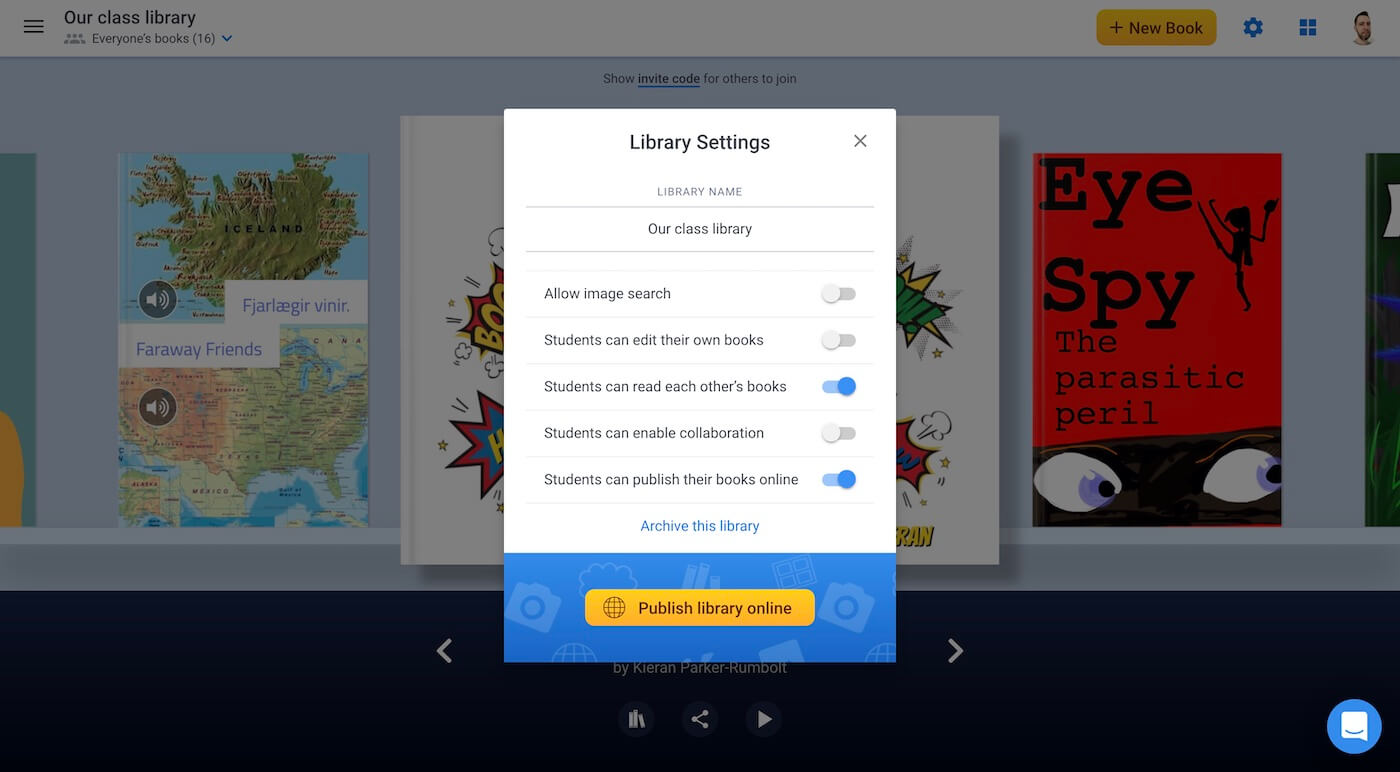
So, depending on how you set up the competition, you'll need to make use of the library settings in Book Creator to configure the library appropriately. For example, if students are making books directly in the library, you might want to turn off the ability to see each other's books. You can also set it so books can no longer be edited once the competition deadline has passed.
Or, if teachers are copying books to the competition library, you might want to set it so books in the library can't be edited, and no new books can be made in the library.
3. Judging
As I mentioned, it's useful for both you and your students if you set a clear and simple rubric for the competition. This helps entrants know what is expected of them, and gives you a scoring system to judge the winners. Just remember to keep it simple - an overly complicated rubric is going to stifle creativity and make it more difficult to judge.
Here are some criteria you might consider including:
Idea/concept. How original is the book? Does it contain ideas that make it stand out from others?
Design. How creative is the layout of the book? Have they balanced decisions about font choice, colour, use of multimedia?
Communication. Have the clearly communicated the ideas/characters/plot in the book? Have they successfully conveyed drama, evidence, humour etc?
Give each a score - for example, maybe 30 points for idea/concept, 10 for design and 10 for communication. That way, you can have multiple people judging books with a clear scoring system, so as to remove any bias.
Another thing you might want to consider, particularly if you're running a district-wide competition, is to limit submissions so you're not overloaded. Have teachers do they're own judging before they submit they're top three, for example. From this, you can make a longlist and then a shortlist for your own judging panel.

4. Prizes!
No competition would be complete without amazing prizes! You might want to have a prize for first place and two runners up, and even a small prize for everyone who enters.
I'll never forget when we ran our first competition at Book Creator and managed to bag a celebrity judge who provided his own awesome prize! You could reach out to local celebrities via social media - it doesn't hurt to ask!
Of course, that option isn't available to everyone... If you’re on a district plan with Book Creator then we can provide swag for you (just speak to your Teacher Success Manager).
5. Celebrate and share
It's vital that you remember to really celebrate everyone who enters, and share the work that students have created. This will inspire other students to get creative and will be a huge motivating factor for students when entering.
Here are some ideas:
- Publish the winning books online (you could even publish the whole library of entrants, or the top 10 books).
- Combine the books into one big book and share that.
- Print the winning books.
- Announce the winners on your school blog/website. Let parents know in your newsletters.
- Share on social media 👇
View this post on Instagram
I hope that's inspired you to try running a competition with Book Creator in your school or district. If you need more advice please feel free to ask in the comments below.
Catherine is a Teacher Success Manager at Book Creator. As a former educator, she supports schools and districts in implementing Book Creator into their curriculum and instruction. She loves showing educators how they can simply bring creativity and student voice into their classroom.


